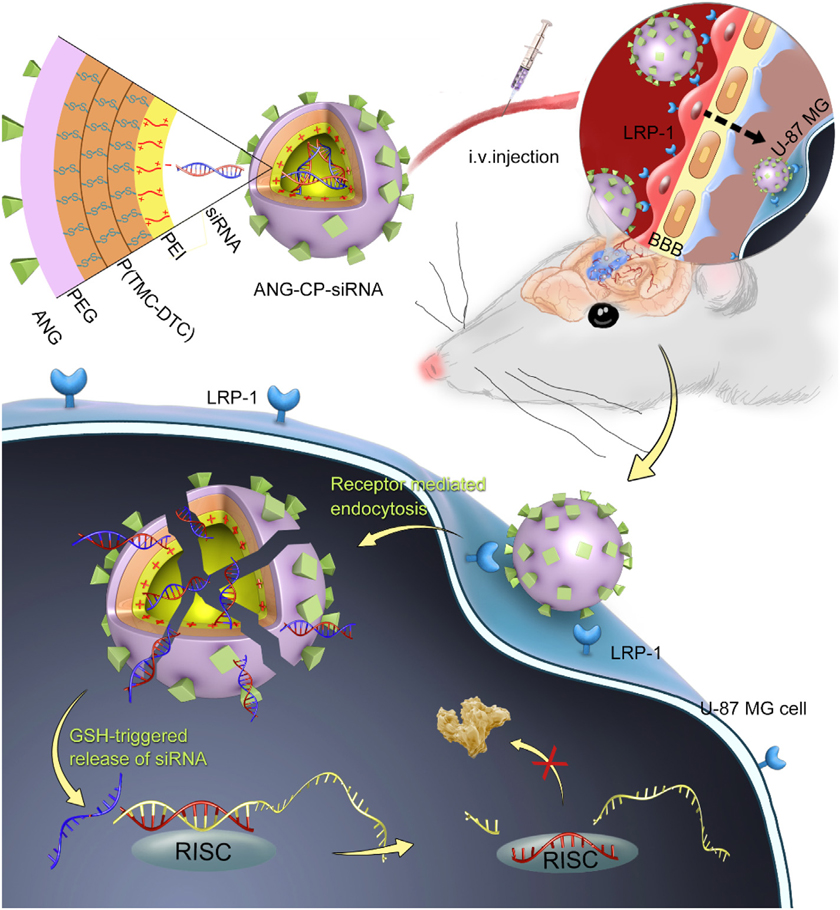
Boosting RNAi therapy for orthotopic glioblastoma with nontoxic brain-targeting chimaeric polymersomes
Glioblastoma with intracranial infiltrative growth remains an incurable disease mainly owing to existence of blood brain barrier (BBB) and off-target drug toxicity. RNA interference (RNAi) with a high specificity and low toxicity emerges as a new treatment modality for glioblastoma. The clinical application of RNAi technology is, however, hampered by the absence of safe and brain-targeting transfection agents. Here, we report on angiopep-2 peptide-decorated chimaeric polymersomes (ANG-CP) as a nontoxic and brain-targeting non-viral vector to boost the RNAi therapy for human glioblastoma in vivo. ANG-CP shows excellent packaging and protection of anti-PLK1 siRNA (siPLK1) in its lumen while quickly releasing payloads in a cytoplasmic reductive environment. Notably, in vitro experiments demonstrate that ANG-CP can effectively permeate the bEnd.3 monolayer, transport siRNA into the cytosol of U-87 MG glioblastoma cells via the LRP-1-mediated pathway, and significantly silence PLK1 mRNA and corresponding oncoprotein in U-87 MG cells. ANG-CP greatly prolongs the siPLK1 circulation time and enhances its accumulation in glioblastoma. RNAi with siPLK1 induces a strong anti-glioblastoma effect and significantly improves the survival time of glioblastoma carrying mice.
Y.N. Shi, Y. Jiang, J.S. Cao, W.J. Yang, J. Zhang*, F.H. Meng, and Z.Y. Zhong*, Boosting RNAi therapy for orthotopic glioblastoma with nontoxic brain-targeting chimaeric polymersomes, J. Control. Release 2018, 292, 163-171.

